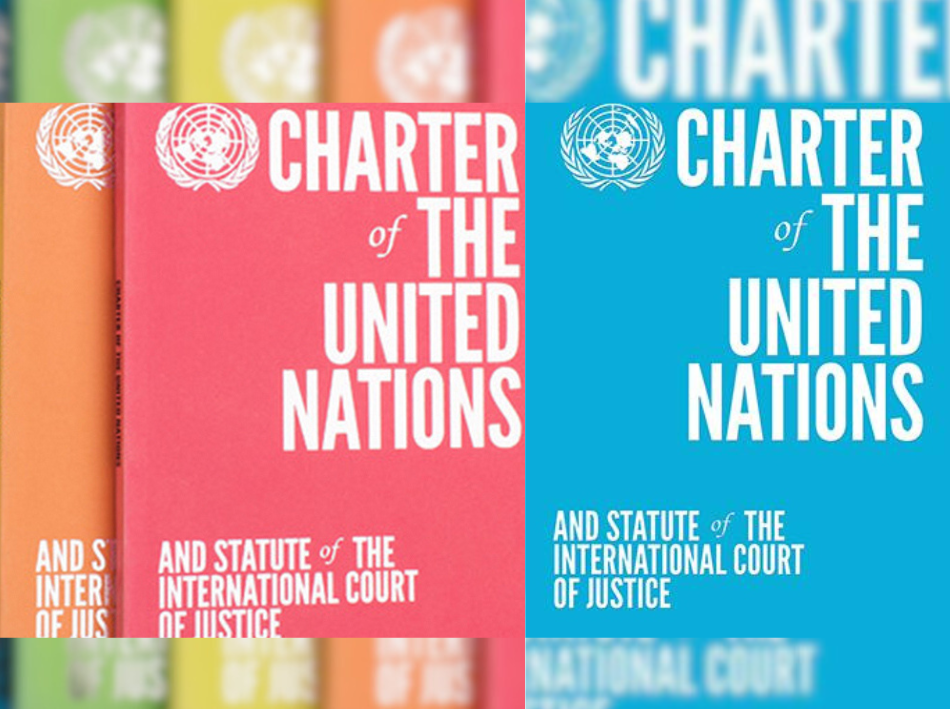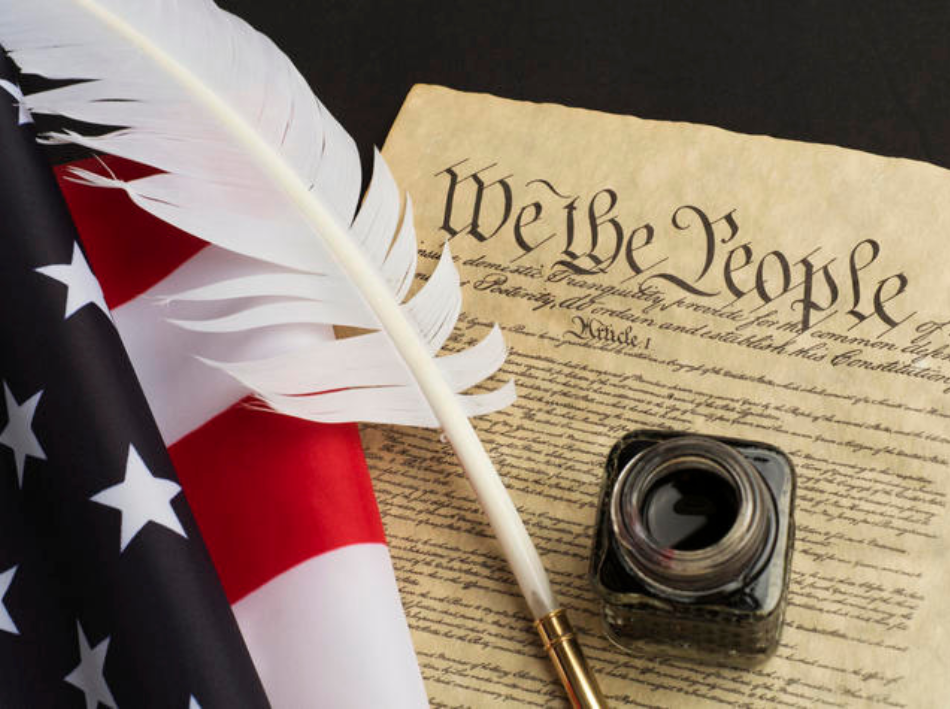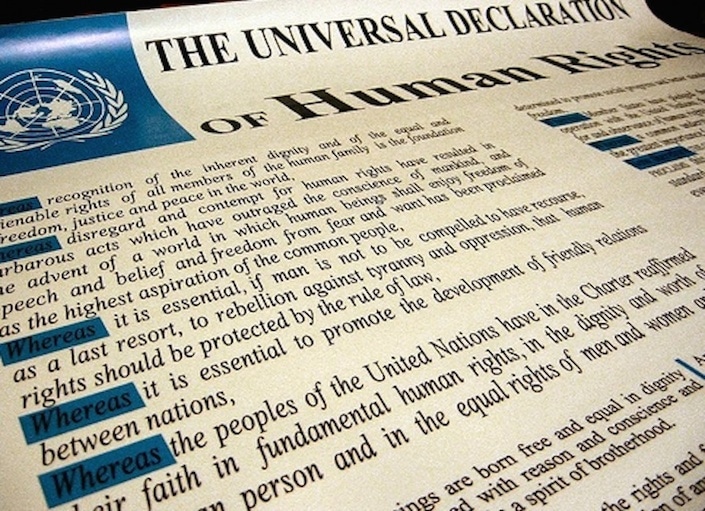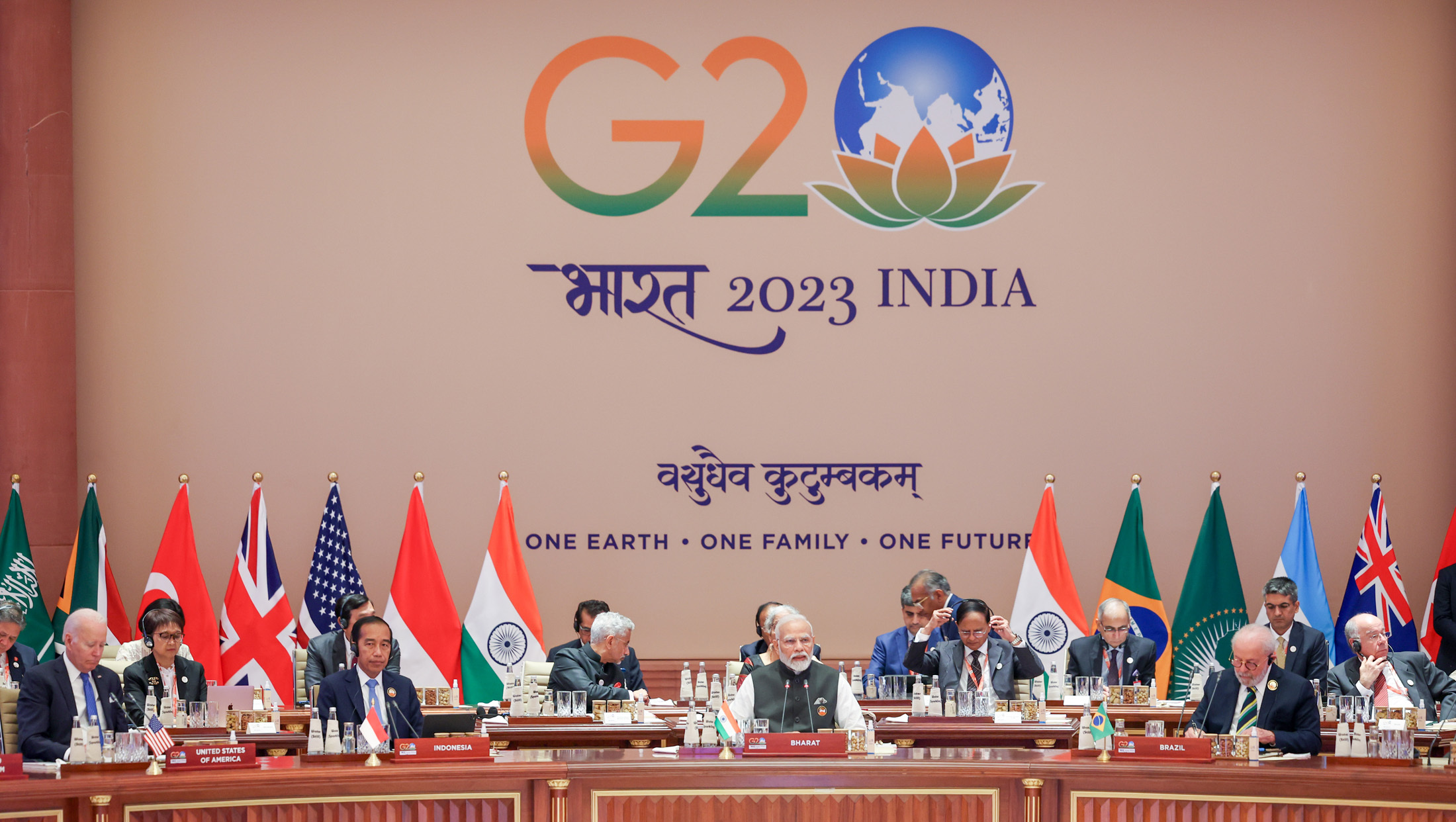Strong case for a World Constitution in current global landscape

A World Constitution can be inspired by examples like the Indian and the American Constitutions as well as UN Charter
In a world grappling with unprecedented geopolitical challenges, ranging from recent conflicts like the ongoing violence in Gaza following the unprecedented attack by Palestinian militant group Hamas on Israel as well as the seemingly unending conflict between Russia and Ukraine as well as the revival of the long-standing conflict between Azerbaijan and Armenia, a resounding call reverberates across the global stage.
It is a call for a fundamental guiding principle to delineate and mediate international rights and responsibilities. This call is in the form of a ‘Constitution of the World,’ drawing inspiration from the eminent jurist Hans Kelsen’s Pure Theory of Law, which provides for a hierarchical legal system with a ‘grundnorm’ at its core, the cornerstone upon which the edifice of global governance can firmly stand.
In Hans Kelsen’s theoretical framework, this ‘grundnorm’ manifests as a ‘Constitution of the World,’ and the foundation stone is the preamble, as I propose:
“We, The Nations of the World, united by our shared pursuit of peace, justice, freedom, and prosperity for every citizen of the world, recognising our interconnectedness as humanity and our common destiny, can envisage the establishment of a ‘Constitution of the World’’ for cooperation and harmony, guiding us towards a brighter future….”
This preamble encapsulates the aspirations of most nations across the globe, proclaiming a solemn commitment to honour the ‘dignity and equal rights’ of all individuals, fostering “peace, promoting sustainability, upholding democratic principles, and eradicating poverty and ignorance.’
In today’s highly interconnected world marked by globalisation and liberalisation, there’s a clear and urgent need to collectively embrace a universally recognised ‘Constitution of the World’. This foundational document has the potential to significantly promote global peace, stability, and a more fair and collaborative international order. Nations would be integral components of this legal framework, bound by a solemn pact to uphold its fundamental principles in their international engagements.
Picture a world where all international peace treaties, agreements, and conventions are crafted in harmony with this Constitution of the World’, infusing them with sanctity and coherence, ensuring alignment with a shared vision of a ‘just, peaceful, and prosperous world.’ However, one might wonder, why the call for a Constitution of the World’ when we have the United Nations and its charters regulating various aspects of global affairs? The answer lies in the necessity for a strong governing power and an efficiently functioning United Nations that can effectively uphold and implement these principles.
Urgent need for reform
In the historical context, the League of Nations, conceived after World War I, initially sought to promote international cooperation and prevent conflicts. However, its failure to prevent World War II highlighted the necessity for a stronger global organisation, leading to the establishment of the United Nations in 1945. The UN aimed to create a better world order through a collective commitment to shared values, epitomised by the UN Charter. Yet, in contemporary times, the effectiveness of the UN has been questioned due to a multitude of reasons, including the rise of powerful nations overshadowing its peacekeeping agenda.
In the present landscape, the UN’s effectiveness in maintaining international peace and security has been undermined, evident in never-ending conflicts like the Israel-Palestine issue, the Ukraine-Russia war, the Rohingya refugee crisis, the Syria crisis, and the dispute over Kashmir. This inadequacy has spurred the need for a Constitution of the World’ that reigns sovereign over all nations, akin to the basic structure doctrine or common law legal doctrine that preserves certain fundamental characteristics of a sovereign state’s constitution.
Crafting the new Constitution
During a recent debate in the United Nations Security Council on the Ukraine conflict, Sanjay Varma, Secretary (West) in India’s External Affairs Ministry, emphasised the necessity for reform and reinvention of outdated and archaic structures within the UN for multilateralism to be effective. He highlighted the need to fix systemic flaws to restore credibility. Hence, the imperative stands, to delineate and postulate a ‘Constitution of the World’ for global governance, where nations act as citizens and must abide by its principles, ensuring a harmonious and just world order.
However, a significant conundrum emerges. How would this World’s Constitution be drafted, governed, enforced, or interpreted? In addressing the drafting process, a specifically constituted assembly with representatives from nations could undertake the monumental task of drafting the constitution through deliberation, mirroring the workings of a constituent assembly in any nation. This assembly, guided by the collective interests and wisdom of the world’s nations, would engage in a process of thoughtful consideration and negotiation to construct a comprehensive and inclusive foundational document.
Like any other domestic constitution, the proposed Constitution would establish a framework for enforcement, wherein one nation could hold another accountable for breaches. The United Nations, acting as the regulatory body, would oversee and ensure adherence to this consolidated, robust, and authoritative set of principles, the very essence of the Constitution of the World. This regulatory role would uphold the integrity and sanctity of the constitution on a global scale, reinforcing its significance and promoting compliance among nations.
Furthermore, the International Court of Justice would play a pivotal role in interpreting conflicts and ascertaining rights within the purview of this constitution. Its role would be to provide guidance, resolve disputes, and ensure equitable application and understanding of the constitution across nations. Thus, envisioning a future where nations unite under a shared legal framework, working collectively to promote peace, justice, and stability on a global scale.
In a revelation that pierced through the fabric of the late 20th century, Moncef Marzoukiv, in his 1999 opus in the pages of French daily Libération, voiced a profound truth. It was an era poised on the edge of a new millennium, and Marzouki astutely recognised the imperative to redefine global governance.
“For fifty years, humanity has forged a corpus of general principles and laws crafted by the UN universal legislator in the form of charters, declarations, pacts, and other conventions,” he had written.
These principles, the covenants under the UN Charter, embodying moral and fundamental tenets, constituted a constitution, ‘‘a de facto and de jure Constitution of the world,” as he stated.
Fast forward to the present, and the jarring reality is that these foundational principles, despite their lofty intent, often falter when confronted by the crucible of reality. Recent conflicts, such as the Israel-Hamas conflict and the Azerbaijan-Armenia discord, have bared gaping chasms in the efficacy of current global mechanisms. Even Article 51 of the UN Charter has proven wanting in maintaining international peace and security.
In the annals of recent geopolitical upheaval, witness the swift and decisive actions undertaken by Azerbaijan in dismantling the separatist Armenian forces in Nagorno-Karabakh in a mere 24 hours. Similarly, contemplate the unprecedented onslaught unleashed by Hamas upon Israel, leaving in its wake a torrent of bloodshed and indescribable loss. These seismic episodes lay bare a critical truth, a glaring void in a governance structure robust enough to redress grievances, safeguard human rights, and preserve life and dignity. It is an urgent global concern that demands immediate redressal.
Strengthening global governance
In the wake of these stark realities, the necessitated call for a ‘Constitution of the World’ echo with resounding urgency and significance. This call transcends the realm of mere ideation. It embodies a seismic shift in our perception of global governance. It urges us to confront the constraints of prevailing international frameworks, compelling us to swiftly adapt to the ever-changing challenges of our world.
On the reasons behind this reform, one only needs to look at the historical backdrop of the Hamas Attack on Israel. Despite the UN’s repeated attempts by the UN, striving to fairly allocate land to both Palestinians and Israelis, and the 1993 Oslo Accord attempting to mediate the dispute, the world finds itself ensnared in an unfortunate impasse.
The Oslo peace process faltered for myriad reasons, rupturing the accord on the international stage. Consequently, after years of struggle, the two sides remain entangled in conflict. A robust and consolidated constitution fortified by principles encompassing life, liberty, peace, and human rights could have made managing wars, disputes, trade conflicts, monopolies, and pandemics considerably more facile by holding nations accountable and penalising their actions, rather than merely condemning them in the light of the enshrined Constitution.
The issue with the UN overseeing nations on the international stage is that certain powers wield formidable influence, employing their veto power, rendering conflicts a struggle between the weak and the powerful. Conversely, a Constitution would treat all nations as equals, holding them responsible for their actions in light of fundamental principles. Moreover, any agreements, treaties, or compacts formulated by nations with others would need to align with the world constitution, ensuring that global justice is attained. Even in the case of a pandemic like Covid-19, all nations under this constitution would owe a duty to one another. Additionally, the governance of extradition and extradition treaties will be streamlined, as everything will be subsumed under the light of the world’s constitution.
In conclusion, resonating with the motto of the 2023 G20 Summit, “One Earth, One Family, One Future,” embracing the vision of a ‘Constitution of the World’ transcends mere idealism; it stands as a pragmatic imperative. It propels us towards a future where nations unite under a unifying legal framework. This vision compels us to strive relentlessly for a world characterised by genuine peace, unwavering justice, and global stability. It is a transformational ideal encapsulating our collective hopes and aspirations, urging us to break free from the chains of the past and tirelessly work towards a brighter tomorrow. The time for change is upon us, and this call acts as the catalyst for a world that embodies justice, equity, and compassion, a world truly united for the common good.
(Sonal Gupta is a practicing advocate at the Supreme Court of India. The views expressed here do not necessarily reflect those of Media India Group.)












